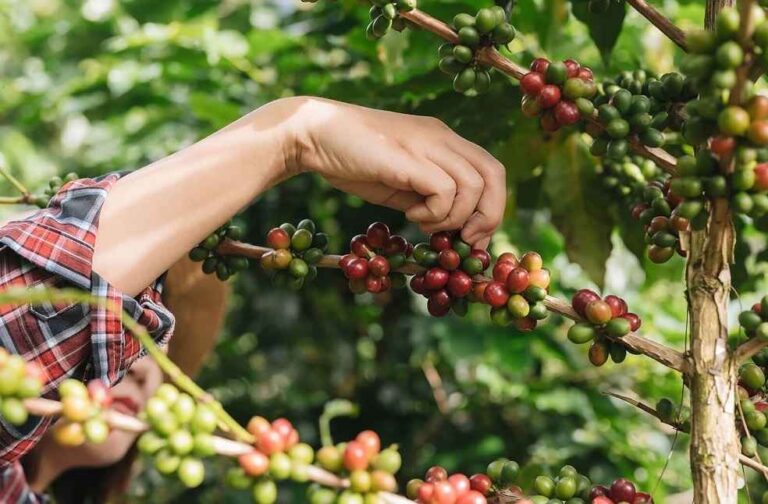Vietnam coffee industry marked an exceptional 2024, achieving a record-breaking performance amid soaring export prices. The bumper harvest not only bolstered the country’s agricultural exports but also set a promising trajectory for 2025.
Vietnam exported 1.24 million tonnes of coffee in 2024, generating over $5.2 billion in export turnover, making coffee the third most valuable agricultural product after vegetables and rice, as reported by the Ministry of Agriculture and Rural Development (MARD).
Although the export volume saw a 14% decline compared to 2023, export turnover rose by over 35%, thanks to record-high prices. October marked a historic milestone with an average export price of $5,720 per tonne—a 59% increase year-on-year. By November, the price slightly dipped to $5,580 per tonne. Across the first 11 months of 2024, the average price exceeded $4,000 per tonne, reflecting a 57% surge from the previous year.

Do Ha Nam, Vice President of the Vietnam Coffee-Cocoa Association (VICOFA), described 2024 as an unprecedented year, with robusta prices occasionally surpassing arabica for the first time. On the London trading floor, robusta prices soared past $5,000 per tonne, a historic achievement.
However, the price volatility presents challenges. Le Duc Huy, Chairman of Dak Lak 2-9 Import-Export, cautioned farmers against speculative hoarding and urged businesses to adopt prudent cost management and risk controls.
“The coffee business today requires 2-3 times more capital to manage inventory, given the increased financial costs and price fluctuations,” Huy explained. He also noted a decline in demand for roasted Vietnamese coffee, as some companies pivoted to Brazilian robusta. Nonetheless, he remains optimistic that demand for Vietnamese robusta in Asia will strengthen by early 2025.
Vietnam exports coffee to over 80 countries, with Germany, Italy, the US, and Belgium among its largest markets. Nam of VICOFA projected that the country’s coffee exports could reach $10 billion in revenue by capitalising on free trade agreements, enhanced marketing, and trade promotion efforts.

The European Union, Vietnam’s most significant coffee importer, offers immense potential as the global coffee market grows. With the EU Regulation on Deforestation-free Products (EUDR) coming into effect in December 2025, Vietnam is poised to maintain its edge by complying with sustainability requirements.
“To retain access to the EU market, it is essential to prove that coffee production does not contribute to deforestation. Vietnamese companies are well-prepared to meet these stringent criteria,” said To Viet Chau, Deputy Director of MARD’s International Cooperation Department.
As global coffee consumption continues to rise, Vietnam’s readiness to adapt to international regulations and sustain high-quality production positions the nation to secure greater market share and further cement its status as a coffee export powerhouse.
TRADE WORLD | Tunisia and Egypt Boost Trade and Strengthen Strategic Partnership



